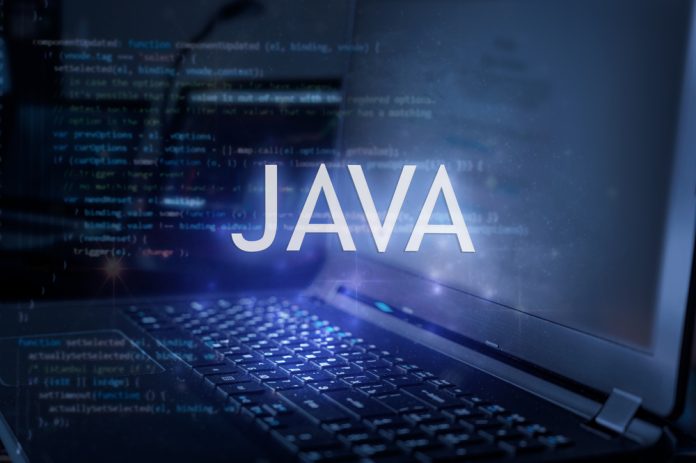If you are into the Java field, and are looking for a job or planning to take Java interview questions, this blog will be useful for you. We all know that if we want to become a developer, Java is the language we should learn.
It’s popular, well paying, and a solid skillset for anyone who wants to develop anything from simple web applications to complex enterprise applications.
Learning Java can be quite challenging for someone with little or no programming experience. You might feel overwhelmed by the sheer number of things you have to learn at the same time. This situation is not particularly pleasant, but it doesn’t mean that you can’t pass an interview and get a job as a Java developer.
The interview will start with the basic java programming questions which help to judge whether you have the required knowledge of java or not.
The questions are then divided into different sections Strings, control statements, Arrays, Classes and Objects, inheritance and so on.
Here are some best practices for Java Interviews Questions for freshers.
Freshers are always thinking of their future. Certainly, we all want to pursue a good job and hope to get an appropriate job. Here we are providing a list of Java Interview Questions for you. Here is the list which also includes the latest interview questions.
What is Java Virtual Machine?
The first thing to understand about Java Virtual Machine is that it is a language interpreter. Like many popular programming languages, compiled Java code has to run inside an intermediate software layer. JVM does just that. It is a program that interprets the intermediate Java byte code and generates the desired output. It is because of byte code and JVM that programs written in Java are highly portable.
How does Java enable high performance?
There are three parts to making a Just-In-Time compiler in Java. The first part is the compilation phase which involves compiling bytecode into native machine code. The next part is the optimization phase, which performs two steps. First, it removes any unnecessary or duplicate instructions from the compiled bytecode. Secondly, it rearranges the instructions to speed up its execution. Then there is the runtime optimization stage which mostly functions at run time instead of compile time.
Explain Object-Oriented Programming?
Object-oriented programming is a programming paradigm centred around objects rather than functions. It is not a tool or a language it is a concept that was designed to overcome the flaws of procedural programming. There are many languages that follow OOPs concepts, some popular ones are java, python, ruby and more. Some frameworks also follow oops concepts, angular is one such framework.
What is Overloading?
Overloading is the phenomenon when two or more different methods (method overloading) or operators (operator overloading) have the same representation. For example, the + operator adds two integer values but concatenates two strings. Similarly, an overloaded function called Add can be used for two purposes. This post will discuss what this threading is and some of its implementations in the .Net framework programming language.
What is String Pool in Java?
A string pool is a memory management mechanism. It controls the creation and release of pooled Java strings. Whenever a new object is created using the new keyword either directly or indirectly, it is checked if it is already present in the pool or not. If it is already present, then the same reference is returned to the variable else new object is created in the pool, and the respective reference is returned.
Advanced Java Interview Questions for Experienced professionals
An advanced Java interview is easily the most important step in advancing your Java career. In order to be an effective Java programmer, it is absolutely necessary to nail the advanced job interview. The best way to prepare for this is by going through numerous practice questions. This blog post is packed full of advanced java interview questions and answers.
What is Interface in Java?
An interface in Java is a template that has only method declarations and not method implementations. It is a workaround for achieving multiple inheritances in Java.
A class that implements the interface must provide an implementation for all methods declared in the interface.
You should always use the extends keyword to specify which interface is to be implemented.
The implements keyword appears in front of the Interface name and may appear more than once.
If a class implements several Interfaces, then it must implement all methods declared in each Interface.
Methods defined in the Interface will be public and abstract. In addition, variables defined within the Interface will be static final.
There’s no need to use the public, abstract and static modifiers since they are already specified when defining a method.
Read More: Types of Communication
Explain Abstract class and its method?
An abstract class is a class that is declared to be the parent class of the subclasses and it can’t be instantiated. It provides a generalized definition and plans associated with a group of classes with similar features. The main purpose of abstract class in java is to avoid code duplication, to improve flexibility, maintainability and reusability. Sounds interesting? Read more to learn how to create an abstract class in Java as well as some important points about an abstract class in Java.
What are packages in Java?
Packages are Java’s way of grouping a variety of classes and/or interfaces together to achieve what the programmer wants to achieve. When you create an application, you need to consider various factors to make sure that your application can support all functionalities. Packagers play a very important role in an application since they manage it as well as handle the functionalities.
Differentiate HashMap from HashTable?
HashMap in Java is a Map-based collection class, used for storing key & value pairs. It is denoted as HashMap<Key, Value> or HashMap<K, V> HashTable is an array of a list, where each list is called a bucket. Values contained in a HashTable are unique and depend on the key. Methods are not synchronized in HashMap, while key methods are synchronized in HashTable. However, HashMap doesn’t have thread safety, while HashTable has the same. For iterating values, HashMap uses an iterator and HashTable uses an enumerator.
Explain map and their types in Java?
Java Map is an object that maps keys to values. It can’t contain duplicate keys, and each key can map to only one value. The equals() method is used for comparing whether two keys are the same or not.
The first type is HashMap
The HashMap is an implementation of the Map interface in Java and is a good example of the implementation of an unordered and unsorted map. A HashMap allows one null key and multiple null values. It doesn’t maintain any insertion order, but it may contain entries with duplicate keys, unlike the TreeMap.
Second Type -HashTable
The map is a non-synchronized and off-heap class in Java. It has the methods that are declared as void, boolean, void and synchronized versions of the similar methods that are available in standard Map collection. Map collection in Java allows for thread safety; however, it can slow down performance because of synchronization.
The third type -LinkedHashMap
A LinkedHashMap is a special type of HashMap that uses a linked list for its buckets. This means that instead of all entries containing a value, the entries contain an entry before and an entry after the current one (hence the name).
Fouth type- TreeMap
A sorted map is used to store elements in a way that doesn’t alter their original order. It supports constructors that allow the programmer to fully control the ordering of the Map. It is one of the built-in generic types in Java and thus follows the rules for overriding methods and type parameter bounds as defined by the Java programming language specification.
We have numerous basic and advanced java interview questions which are regularly updated to provide you with the most accurate and relevant JAVA questions covering both the basic and advanced concepts of Java programming. The said questions have been collected and answered by our experts who have vast experience in working with Java
I hope you have a basic idea about Java programming and JSP pages. If yes then let us start with the core coding in Java.












